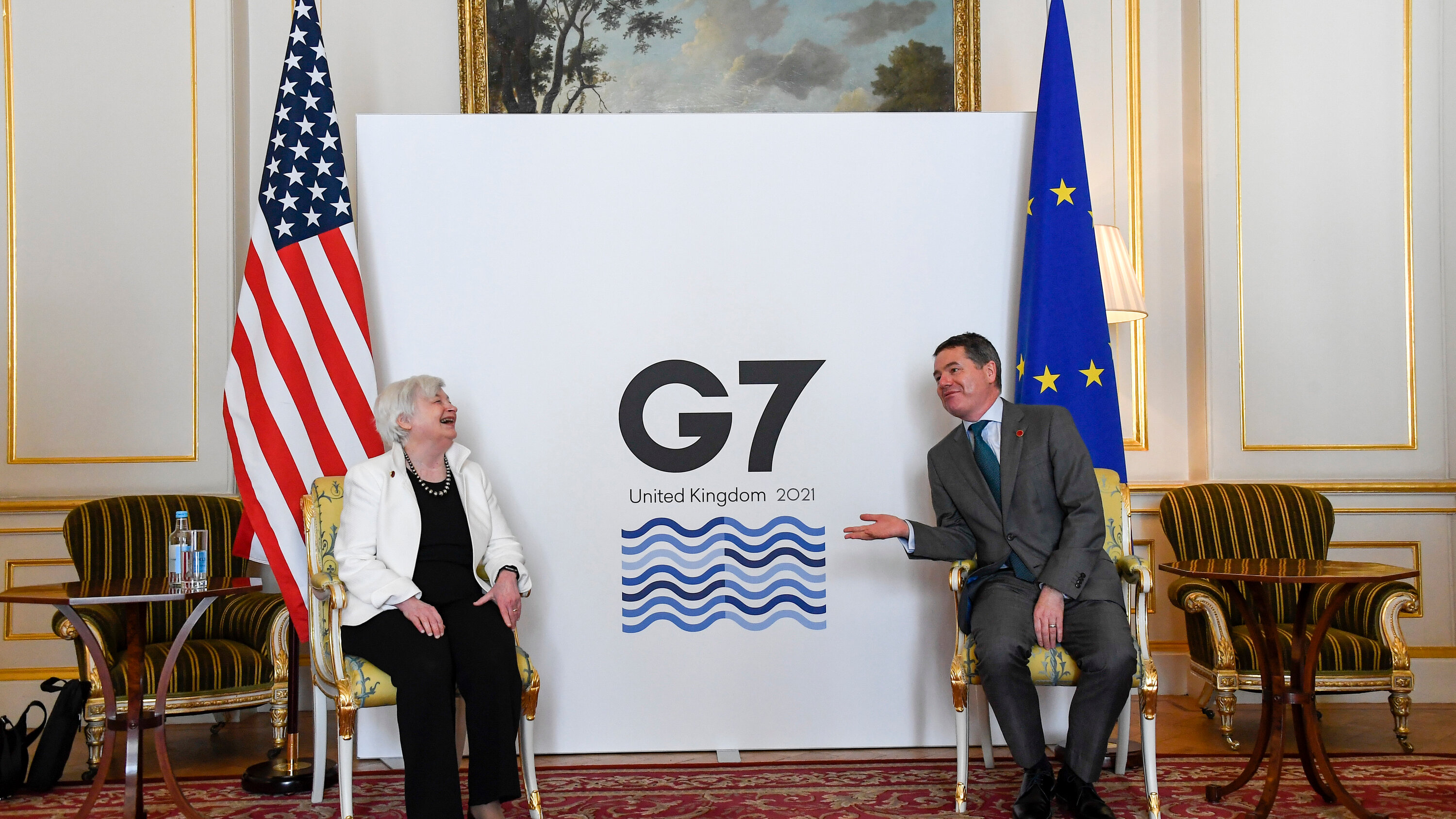G7 Finance Ministers Ignore Tariffs In Final Statement

Table of Contents
Notably Absent: The Silence on Tariffs in the G7 Communiqué
The G7, historically a champion of free trade and open markets, has consistently advocated for reducing trade barriers and promoting global economic cooperation. Previous communiqués often included strong language condemning protectionist measures and endorsing multilateral trade agreements. This year’s final statement, however, marked a significant departure from this tradition.
The specific wording (or rather, lack thereof) regarding tariffs in the final communiqué was striking. Instead of the expected condemnation of escalating tariffs and trade wars, the statement contained only vague references to the need for strong and sustainable global economic growth.
- No direct criticism: The communiqué notably avoided direct criticism of specific tariff policies, such as the ongoing US-China trade war or other bilateral tariff disputes among G7 members.
- Indirect references: Any mentions of trade or economic challenges were largely indirect, lacking the forceful language previously used to address protectionist measures.
- Sharp contrast to previous statements: This stands in stark contrast to past G7 communiqués, which often explicitly condemned the use of tariffs as tools of economic coercion and advocated for the resolution of trade disputes through multilateral channels.
Potential Reasons Behind the Omission: Political Considerations and Internal Divisions
The conspicuous silence on tariffs likely stems from a complex interplay of political considerations and deep internal divisions among G7 members. Differing national interests significantly influenced the final communiqué.
The reluctance to publicly criticize specific countries' trade practices was palpable. Several G7 members may have been hesitant to alienate key trading partners or risk retaliatory measures.
- Disagreements on trade policy: Significant disagreements exist among G7 members regarding the appropriate level of trade intervention, the role of multilateral institutions, and the handling of trade disputes.
- Domestic political pressures: Domestic political pressures, particularly in countries facing significant economic challenges, played a role in shaping the G7's relatively muted response to rising tariffs.
- Challenges in reaching a consensus: Reaching a consensus on sensitive trade issues is inherently challenging, especially when national interests diverge significantly. The absence of strong language on tariffs reflects the difficulty of bridging these divides.
Implications for Global Trade and the World Economy: Uncertainty and Risk
The G7’s failure to address escalating tariff disputes directly carries significant implications for global trade and the world economy. The lack of a unified front against protectionism increases uncertainty and risk.
The consequences of this inaction could be far-reaching, potentially impacting global economic growth and investment. The ambiguity surrounding trade policies increases uncertainty for businesses operating in international markets.
- Increased uncertainty for businesses: Businesses face increased uncertainty in planning investment, supply chains, and global operations due to the unpredictable nature of future trade policies.
- Potential for further escalation: The absence of a strong condemnation of tariffs could embolden countries to pursue further protectionist measures, potentially escalating trade wars.
- Risks to global supply chains: Disruptions to global supply chains are likely, as businesses adjust to an environment characterized by greater trade barriers and unpredictable policy changes.
The Role of Multilateral Institutions: Weakened Influence or Adaptation?
The G7's muted response on tariffs raises critical questions about the future of multilateral institutions like the World Trade Organization (WTO). The lack of strong support for the WTO's role in resolving trade disputes could signal a weakening of its authority and effectiveness.
The silence on tariffs could also suggest a shift towards a more bilateral approach to trade agreements, potentially undermining the multilateral system that has underpinned global trade for decades.
Conclusion: The Unsettled Future of Global Trade
The G7 Finance Ministers' failure to directly address rising tariffs represents a significant departure from previous positions on free trade and open markets. This omission reflects underlying political divisions and raises serious concerns about increasing global trade uncertainty. The lack of strong condemnation may embolden protectionist policies and further destabilize the global economy. The absence of a unified stance on tariffs weakens the global trading system and increases the risk of further trade conflict.
The G7’s silence on tariffs demands a closer examination of the future of global trade policy. Stay informed on further developments related to G7 trade policies and the impact of tariffs on the global economy. Understanding the implications of this decision regarding tariffs is crucial for businesses and policymakers alike. The continuing rise of protectionism and the lack of a united front against it pose a significant threat to global economic stability and prosperity.

Featured Posts
-
 Planning Your Country Escape Location Lifestyle And Budget
May 25, 2025
Planning Your Country Escape Location Lifestyle And Budget
May 25, 2025 -
 Hafengeburtstag Roland Kaiser Und Der Hsv Steht Der Aufstieg Bevor
May 25, 2025
Hafengeburtstag Roland Kaiser Und Der Hsv Steht Der Aufstieg Bevor
May 25, 2025 -
 M56 Traffic Updates Motorway Closure Due To Serious Crash
May 25, 2025
M56 Traffic Updates Motorway Closure Due To Serious Crash
May 25, 2025 -
 Severe Thunderstorms Bring Flash Flood Warning To Hampshire And Worcester
May 25, 2025
Severe Thunderstorms Bring Flash Flood Warning To Hampshire And Worcester
May 25, 2025 -
 Find The Saint On Itv 4 Schedule Episodes And Viewing Information
May 25, 2025
Find The Saint On Itv 4 Schedule Episodes And Viewing Information
May 25, 2025
